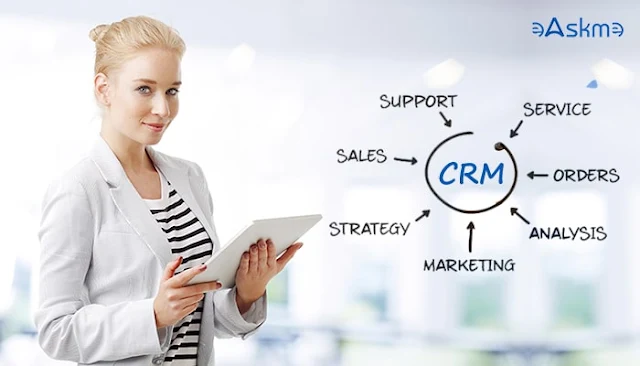Candidate relationship management software aims to improve a company's relationship with various applicants for job vacancies. This technology automates the communication process between the candidates and HR and encourages engagement and feedback, which enhances the overall hiring process.
 |
| What are the Benefits of Recruitment Agency CRM?: eAskme |
The recruitment process is challenging because today's market is becoming more competitive.
Some companies might find it hard to attract top performers with their offers, and others might even struggle to fill the position in 12 weeks.
The best CRMs can help recruitment agencies manage their client data.
It offers agencies the ability to:
- Keep track of contact information and candidate's current or past jobs
- Monitor the performance of their campaigns
- Generate reports on how their campaigns are performing
What is a CRM?
The candidate relationship management program helps employers find prospective candidates through job boards, sites like LinkedIn, and other platforms.
They track highly-qualified individuals and create opportunities for them to apply for job vacancies and roles that will suit them and maintain an excellent connection with them in the long run.
With the right software and approach, a company can get entertained by top-notch individuals, and the two can stay in touch after the interview.
This is even applicable to the list that was tagged as archived.
The primary aim is to hire the best people who can get the job done, but there are also considerations for those saved in the CRM software's database to see if they are available for future openings.
See more posts about software on this site: https://www.techtarget.com/searchapparchitecture/definition/software.
Benefits to Know About:
You can manage your recruitment process more effectively by having the right system.
Here are some of the benefits to consider:
Improved Efficiency:
An automated system will help you keep track of all your recruitment activity in one place, making it easier to manage and monitor.
This will save you time and money.
More Control Over Your Recruitment Process:
The software will give you more control over the hiring process, and you'll be able to track the progress of each candidate and ensure that all necessary paperwork is completed correctly.
Everything can run smoothly, and you get the best candidates for your position.
Better Communication with the Candidates:
A CRM system will allow you to talk to candidates more easily.
You'll be able to track the status of each application and keep up to date on any changes or updates.
This will help you keep everyone informed and on track, ensuring that everyone is up-to-date and they are not kept waiting.
Other Advantages:
1. Build Better Candidate Profiles:
Even the smallest details count when it comes to the hiring process.
With the right software, you can catch and take note of any information relevant to the job vacancy and decide afterward whether you want to choose a particular individual or not.
You can get the candidate's social media accounts, interests, skills, and previous jobs, and you might even get the chance to do a background check before hiring an applicant.
The goal is to view a candidate's overall qualifications without needing to sift through hundreds of databases and records needlessly.
2. Give you More Talent Pools:
After the qualified applicants interact with the careers section of your company website, you want to call one of them and learn more about their experience and skills.
With the right CRM, you can do these things more efficiently because the data is captured in the system so that you can use them later.
This is one of the quickest ways to build a database of talent pools so that you would have plenty of options as a headhunter.
The data is fed into the recruitment agency's best CRM systems, and the software will refine and hone the information to help you pick the best people to fit the role.
This can generate the best results in no time.
3. A More Personalized Communication:
Businesses can send automatic communications to everyone involved in the recruitment process to make things easier.
These emails can consist of the progress of an application, updates, reminders to pass the requirements, and more.
Some have features where candidates can ask about the next phase of the hiring process, and the software automatically sends them an outlined stage of what they need to do next.
This prepares everyone and keeps them informed about their application.
Other recruiters can benefit from this because they don't experience too much pressure when the communication is done automatically.
Overall, this is a win-win situation for everyone.
Conclusion:
These are just some of the features and benefits you can get with a well-functioning CRM.
It can help your business to keep track of all the important data related to its recruitment process, from hiring candidates to managing employee relationships.
It can also help you to optimize your marketing efforts and understand how best to reach potential employees.
By investing in good software, you will be able to improve your operations considerably and ensure that your business is running as smoothly as possible.
Do share your thoughts via comments.
Don't forget to join the eAskme newsletter to stay tuned with more Facebook updates.
Share it with your friends and family.
You May Also Like These;
















